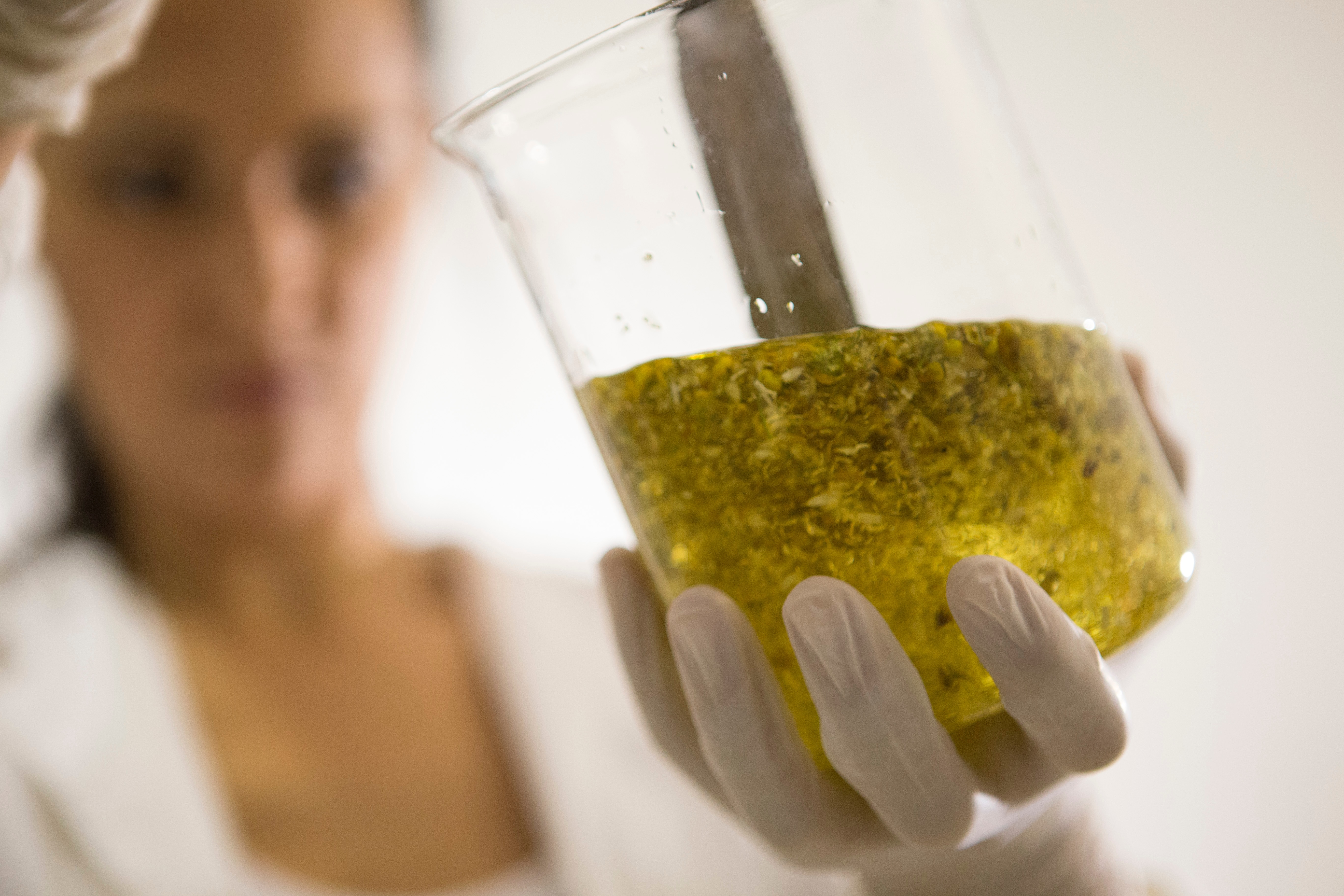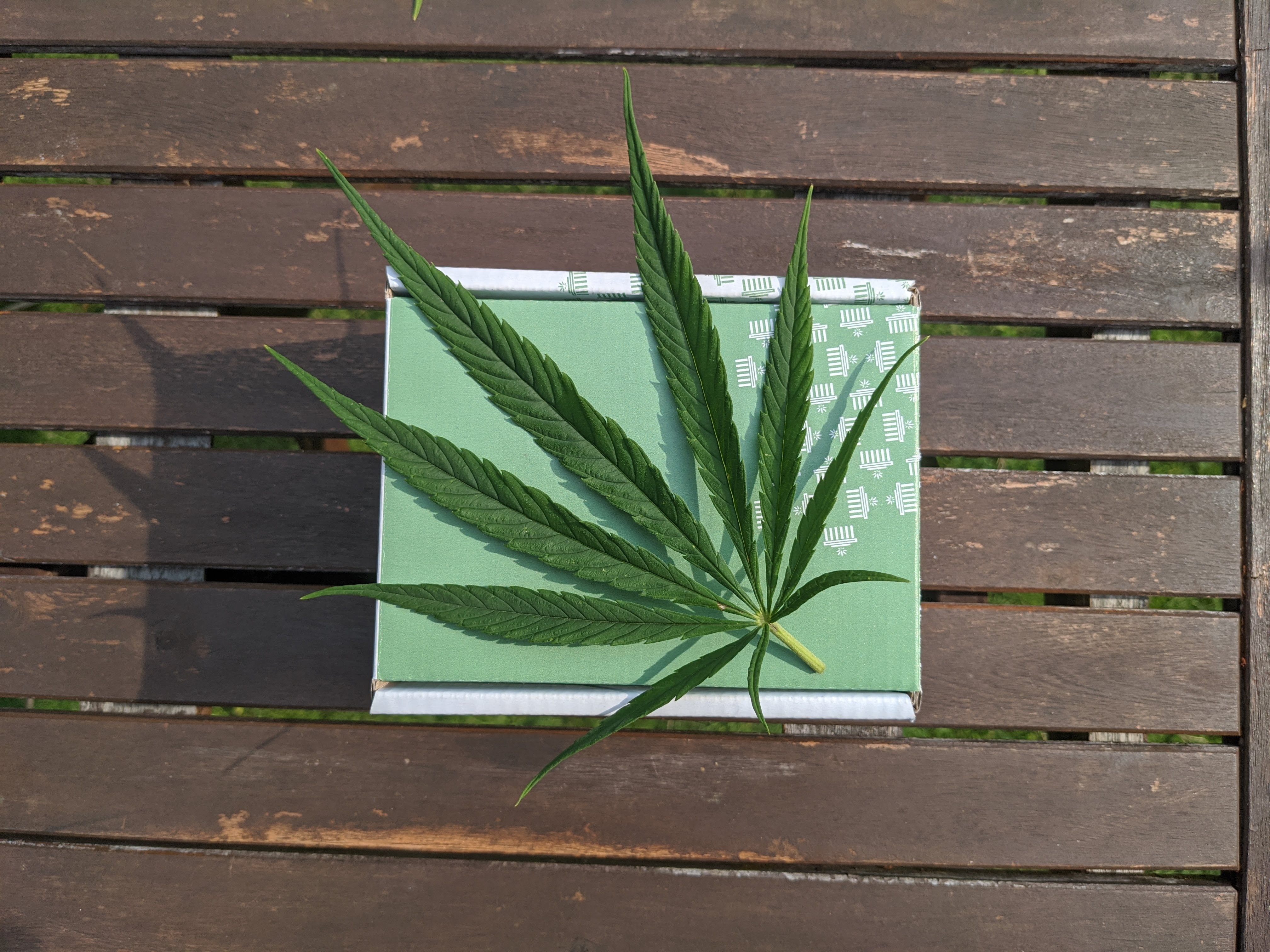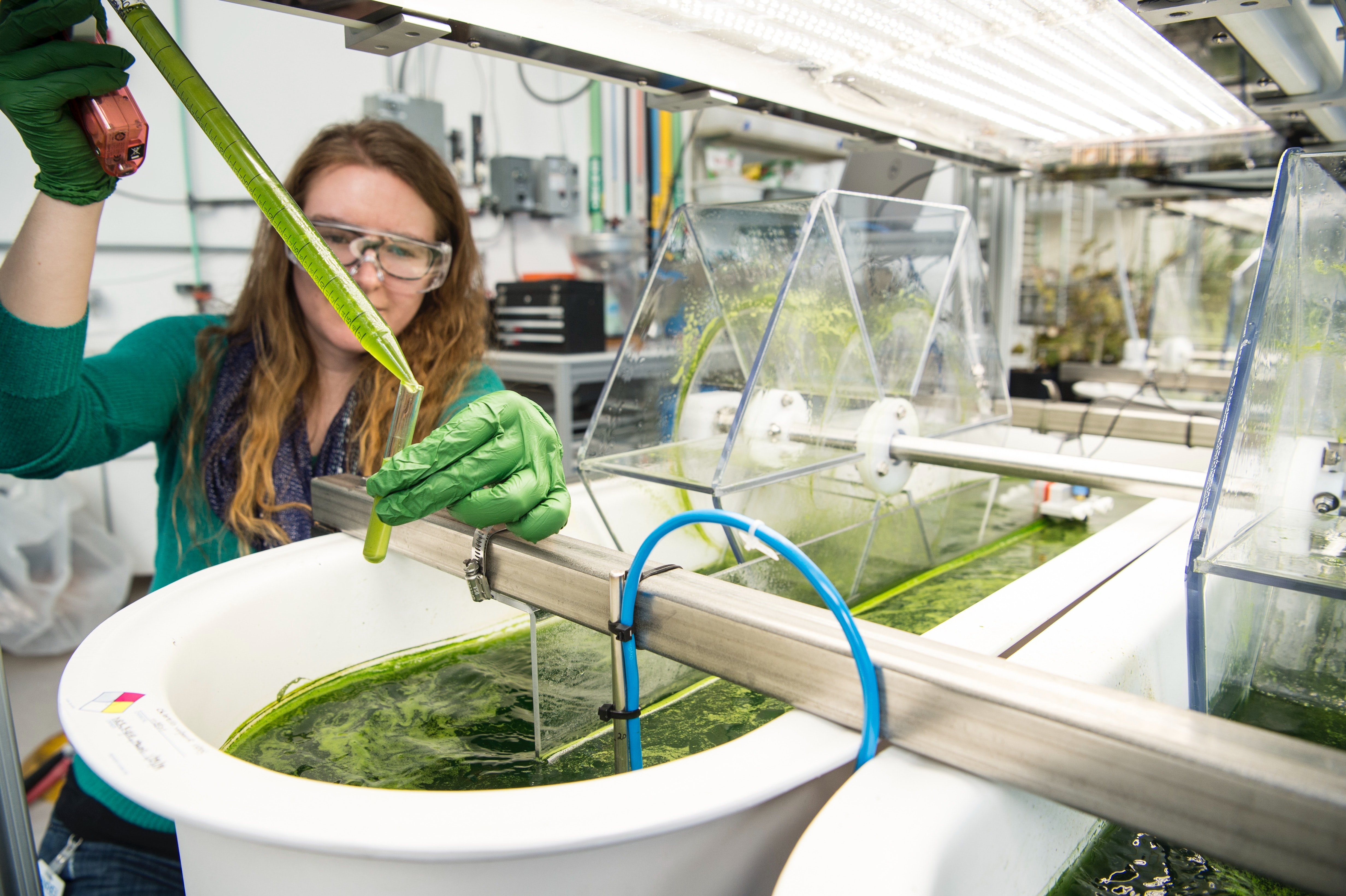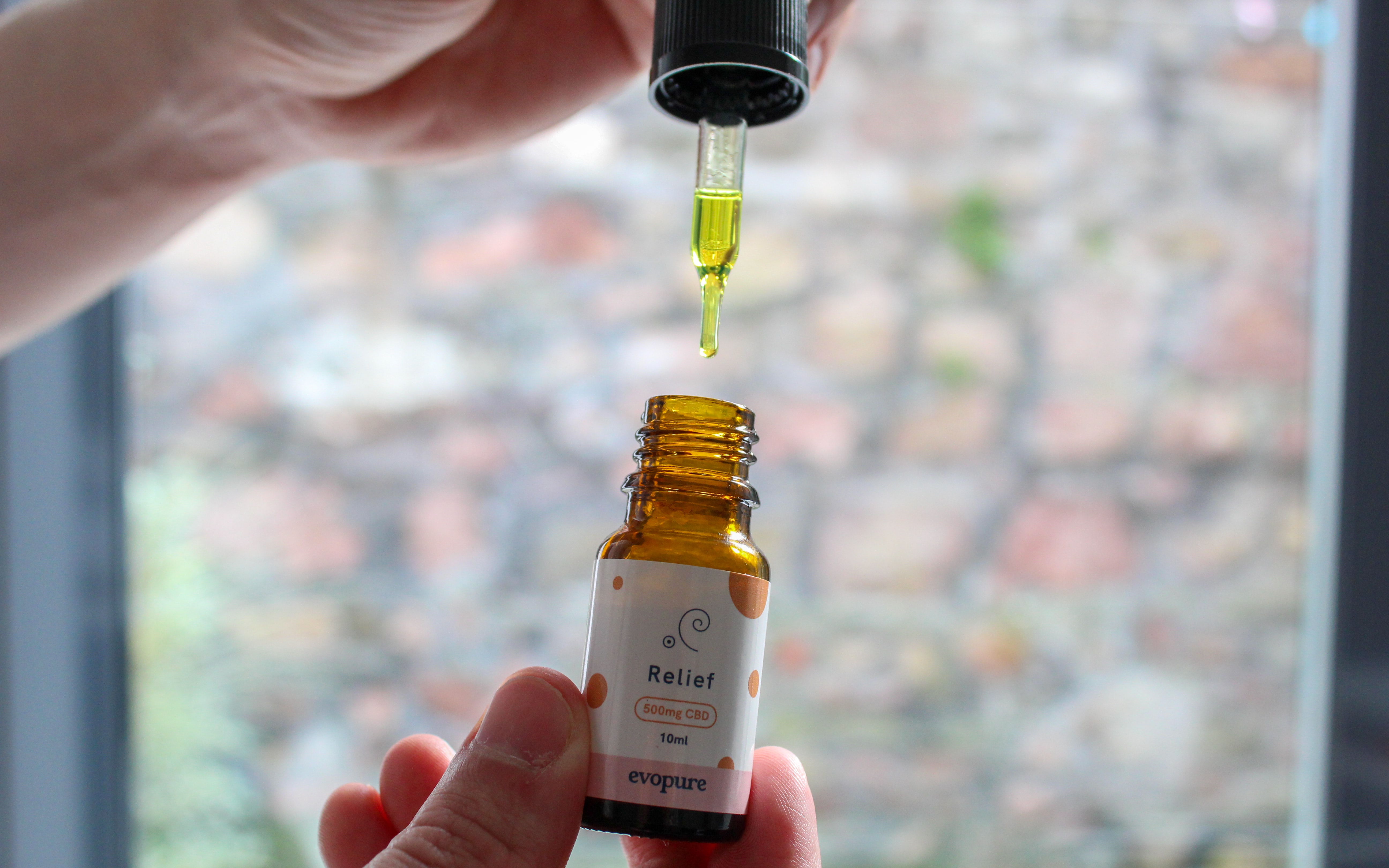
From CBD oils to CBD-infused eyeshadow... as new CBD companies continue to develop, the CBD market has become increasingly saturated.
Consumers are becoming more informed as to which CBD companies are reputable and which aren’t.
This is where third party verification comes in, as it’s one of the main indicators to consumers that a particular CBD brand is trustworthy.
So…
What exactly is third party testing?
When a CBD manufacturer creates a product, they will send their samples to a separate testing company that isn’t affiliated with the CBD manufacturer or distributor. This is called third party testing.
The reason for sending it off to a separate testing company is to ensure there are no compromises.
Think of it like this…
You’ve been baking cakes for a few years now. You hear there’s a cake competition coming up and you're curious to see if your cake would win. After all, your kids love it, your spouse loves it, even your next door neighbor loves it.
But to really ensure your cake truly stands a chance, you need to get an outsider’s opinion.
If you only had your close friends and family members taste your cake, they may be biased in their opinion, or worse… they are too nervous to give their honest opinions about how the cake truly tastes. The fear of hurting your feelings or loyalty to your baking skills may have a lot of influence in their reactions to your cake.
But if you were to go to strangers, people who don’t know you, then you’ll likely get more honest feedback.
Now we understand that CBD and cake are two entirely different things, but the example above is to paint a picture of why reputable CBD manufacturers seek out separate testing companies.
You see, the whole purpose of third party testing is to get an honest, unbiased analysis of CBD products.
These products include:
-
And much more
But why is third party testing so important?
Importance of third party testing

In a nutshell, third party testing ensures that the CBD product you’re about to consume, or apply to your skin, is safe and accurately labeled.
Accredited testing companies look for the following:
-
Quality
-
Purity
-
Potency
-
Consistency
And here’s why…
Unfortunately, both the Food and Drug Administration (FDA) and the Federal Trade Commission (FTC) have yet to approve any non-prescription CBD products.
In fact, the only CBD product that has been approved is Epidiolex –– an oral medication prescribed to treat rare forms of epilepsy, such as Dravet Syndrome and Lennox Gastaut Syndrome.
But because of this, the CBD industry has become increasingly saturated with companies that are only out to turn a profit.
Pretty crazy, right?
Well, it actually gets worse.
This lack of regulation has opened the door for some unreputable companies to create absolutely harmful, toxic, and even life-threatening CBD products.
In 2018, 52 people in Utah consumed falsely labeled CBD products. These products caused these consumers to fall incredibly ill, and over 50% of the victims ended up in the emergency room. They suffered from nausea, vomiting, seizures, shaking, and altered mental states.
According to the Center for Disease Control and Prevention, “Nine product samples (including one unopened product purchased by investigators from a store and brand reported by a patient) were found to contain a synthetic cannabinoid, 4-cyano CUMYL-BUTINACA (4-CCB), but no CBD.
Eight of the tested products were branded as “Yolo CBD oil” and indicated no information about the manufacturer or ingredients. Blood samples from four of five persons were positive for 4-CCB.“
Now, you would think that after these 52 cases, the FDA or FTC would set some sort of regulation on CBD products... but they didn’t.
The CDC stated:
“This investigation highlights the hazards of consuming unregulated products labeled as CBD. States could consider regulating products labeled as CBD and establishing surveillance systems for illness associated with products labeled as CBD to minimize the risk for recurrences of this emerging public health threat.”
So it seems the CDC is acknowledging the lack of regulation and now suggesting individual states to consider their own regulatory procedures.
This is where third party testing helps set reputable companies apart from shady companies who are out to make a quick buck.
But wait…
What do third party testing labs test for?
As we mentioned earlier, third party testers are looking for quality, purity, potency, and consistency.
They also ensure the final CBD product is safe to consume and accurately labeled.
Without third party testing, you’re basically rolling the dice on possibly consuming a harmful product.
Now there are several things a tester looks for, and we’re going to look at a few below...
Third party testing and cannabinoids

Third party testers start by looking at the cannabinoid profiles.
Accredited third party companies will use state of the art testing equipment and techniques when looking for cannabinoids.
One in particular is high-performance liquid chromatography or HPLC. This technique allows testers to identify the exact amount and potency of each cannabinoid. And the cannabinoids that they often look for are as follows:
-
Cannabidiol (CBD)
-
Cannabidiolic Acid (CBDA)
-
Tetrahydrocannabinol (THC)
-
Tetrahydrocannabinolic Acid (THCA)
-
Cannabigerolic Acid (CBDA)
-
Cannabigerol (CBG)
-
Cannabichromene (CBC)
-
Cannabinol (CBN)
-
And more
While potency is the main reason the tester looks at cannabinoid profiles, it’s also to ensure the level of THC –– the cannabinoid responsible for getting its users high –– isn’t astronomically high.
Due to the 2018 Farm Bill, hemp is considered federally legal. This is because hemp only contains trace amounts of THC, whereas marijuana contains much more.
But if a hemp-derived product contains more than 0.3% THC, then the user and manufacturer could possibly get into some serious legal trouble.
So it’s best to ensure your product contains the legal amount of THC before purchase or consume it.
Third party testing and terpenes
Third party testers also look at terpene profiles.
Terpenes are these little volatile compounds that give hemp and marijuana its unique smell and taste.
And believe it or not, terpenes are also found in citrus fruits like oranges, lemons, and limes.
Now you might be wondering, why are testers looking for these tiny little compounds?
The truth is, these compounds pack a whole lot of benefits. In addition to giving cannabis its unique smell and taste, they also help improve the absorption of the cannabinoids found in cannabis.
But that’s not all. Certain terpenes can help with nausea, insomnia, they can alleviate stress and reduce inflammation.
The terpenes that usually show up on a third party test results include:
-
Alpha Pinene
-
Camphene
-
Beta Pinene
-
Myrcene
-
Alpha Phellandrene
-
Delta 3 Carene
-
Alpha Terpinene
-
Limonene
-
Ocimene
-
Para Cymene
-
Eucalyptol
-
Beta Caryophyllene
-
And more
You’ll usually only see terpenes in full spectrum or broad spectrum CBD products — both of which utilize all parts of the hemp plant.
The only difference between full spectrum and broad spectrum, is that broad spectrum is said to have no THC.
But the only way reputable CBD companies can truly say their broad spectrum hemp products are “THC free” is through third party testing.
Without proof, consumers are hesitant to buy.
Third party testing and heavy metals
This is perhaps one of the most important things third party testers look for.
The cannabis plant, which includes both hemp and marijuana, is a bioaccumulator, which means it’s able to pull all the nutrients from out of the soil and concentrate them directly into their stems, leaves, and buds.
You might think this is a good thing, and it is, but not if the soil is contaminated with harmful, and sometimes deadly toxins.
Heavy metals can lower your energy levels, damage brain functions, and attack your lungs, kidneys, liver, and other vital organs.
The most common heavy metals third party facilities look for include:
-
Lead
-
Mercury
-
Arsenic
-
Cadmium
It’s imperative that you ensure your CBD products are free from these toxins. Otherwise, you could be ingesting a life-threatening poison.
Third party testing and solvents
In order for reputable CBD companies to create high-quality CBD products, they will need to extract the CBD from the cannabis plant.
Thankfully, more companies are using higher quality technologies like vapor distilled extract and supercritical CO2 extraction methods.
But there are some companies that use solvents to extract their cannabinoids.
Organic solvents are not a horrible option, but it’s important that you are careful in how much and which ones you consume.
The three most popular solvents used in extraction are alcohol, butane, and ethanol, all of which can cause unwanted side effects if third party testers detect high levels of them in the sample.
Not to mention, butane and ethanol are known to be extremely dangerous and flammable.
Third party testing and other biological toxins
Anytime you consume a product, you’re allowing the nutrients of that product to enter into your body.
So you want to be sure that the product you’re consuming is free from horrible contaminants, like:
-
Parasites
-
Bacteria
-
Fungi
-
Mold
-
And more
The main reason these contaminants raise such a concern is that they can possibly cause allergic reactions and may even cause life-threatening side effects.
Third party testers also look for pesticides, herbicides and insecticides, all of which have been shown to cause an array of unwanted health effects.
As you can see, third party testing ensures the products you consume are safe and truly beneficial.
But not all hemp companies are looking out for your best interest.
Not all CBD is created equal

While we know the CBD industry is highly profitable, not all hemp companies are making money.
One reason is third party testing.
Third party testing is not cheap and only reputable hemp companies will fork out the money and the investment to have their products thoroughly tested before they hit the market.
You see, shady CBD companies are not looking to put out a quality CBD product. They’re simply making as much product as they can in order to turn a profit. And their products are filled with questionable ingredients and harmful contaminants.
Reputable CBD companies care about their customers and their reputation. They understand that transparency is key to gaining their customers’ trust.
Here are a few things to look out for when choosing a trustworthy hemp company:
-
They source their CBD from high quality sustainable hemp farmers that ensure their soil is clean, pure, and free of heavy metals, pesticides, herbicides, GMOs, and all other harmful toxins.
-
Their CBD is carefully, safely, and gently extracted using high quality supercritical CO2 or vapor distilled extraction methods.
-
They list all active and inactive ingredients in each of their CBD products. This includes the additional carrier oils like coconut oil or hemp oil, the flavors (if any), and the milligrams (mg) of CBD.
-
They thoroughly have their products tested by an accredited third party to ensure the safety and potency of all the ingredients involved.
-
Finally, they provide all test results and additional information about their products on their website. This gives customers total transparency into the CBD company they are considering.
Third party testing: the bottom line
The truth is, when you come across a reputable CBD company that utilizes third party testing, they’re actually taking the steps to self-regulate. This means they’re not waiting until the FDA or the FTC gets their act together before they ensure their products are safe to consume.
Instead, they’ve taken action by doing their due diligence in creating high quality hemp products that are effective, safe, and accurately labeled. And it’s all thanks to unaffiliated third party testing.
And all we have to say is… kudos to them!
In an industry where the therapeutic benefits of CBD are highly unregulated, it’s nice to know that there are steps to ensure you can still purchase and consume a safe and highly potent CBD product that's free of harmful toxins.
For this reason, we suggest that if you happen to come across a truly reputable hemp company that has their CBD products thoroughly tested by an accredited and unaffiliated third party, then you’ve likely struck gold.


